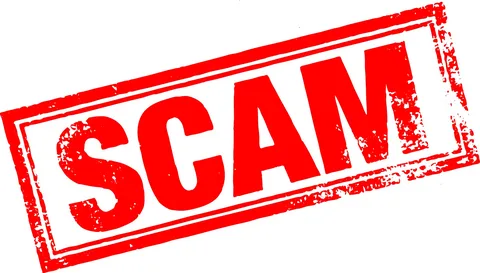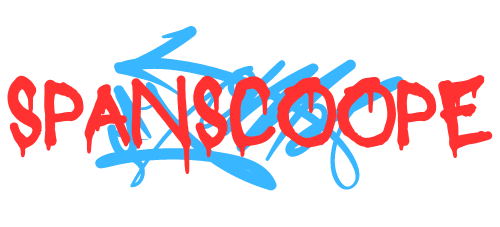Table of Contents
Introduction to the 210-216-1521 Scam
In recent years, as have the criminals, technology has advanced, thus the emergence of the 210-216-1521 Scam. As long as you receive a call or a message from this number, you must be very careful, and it may be avoided.
They devise other hacks to cheat clueless people and, in the process, jeopardize your information. What do they want? These people aim to create chaos and be able to solicit information from you that would allow them to impersonate or defraud you. Be sure that you will maintain attention. This will help you address how these scams operate, thus ensuring you and your family do not fall prey to them. Let us examine what appears to reverse victim mentality in these con men using the 210-216-1521 and what can be done so that the people do not fall prey to such con artists.
How the Scam Works: Step by Step

The 210-216-1521, which people often state has been linked with conspiracy theories, starts with a phone call. This call is usually a surprise and has not been anticipated by the person receiving it. However, such an individual must be in federal or financial bureaucracy.
They induce panic, threatening that either you pay this amount or we will impose this amount on you in court. With this method, I can reproduce the feeling of panic within you and want you to satisfy it by doing something I want you to do.
Once they have this information, they will want more details about your life, such as your house number, social security number, and banking information. They will represent some links as clickable under the pretext of confirming something, and when clicked, they will end up with a bunch of advertisements.
Some scammers go as far as counterfeiting their phone numbers or using advanced teasing methods, making it difficult to detect the con at an early stage of squaring it out.
During the conversation, they are resourceful and apply physical and emotional pressure. The strategy is simple: get such information before you realize you are being scammed.
Warning Signs to Look Out For
Regarding the 210-216-1521 Scam, the first level of any defense is knowledge.
When you pick up the phone and find it is a 210-216-1521 scam, do not surrender to the fraudster’s brilliance. Let me tell you what is alarming about such situations. Support under pressure does not help. It is fraud.
A sudden request for sensitive details may be a red flag, as these types of scammers will still ask for your social security number, among other information. This is a common practice when calling scammers.
Could you pay attention to its underlying purpose? If it is overly aggressive or contains threats, do not speak further and hang up. This is a common tactic used by most scammers.
Be cautious about extravagant offers—there is always a tiny, less appealing detail included in that bargain.
Steps to Protect Yourself and Your Personal Information
Protecting your private information should always be the first concern. Start by creating different, strong passwords for every account. Something like a birth date or a name should never be chosen for use.
Enable two-step authentication on all sites. This additional protection system asses additional difficulties for fraudsters.
Inquire about facts over the phone only when necessary, and avoid providing information too readily without ascertaining the caller’s identity. Verify with whom you are or any other critical details before disclosing any sensitive information.
You should periodically check for updates and online and offline applications. Many software package updates help protect computers against some of the problems that fraudsters target.
Learn how to protect yourself from the many scams and con games that target many individuals. The more you know, the easier it will be to prevent such weaknesses from cropping up.
Learn techniques to avoid fraud, deception, and con games. The more you understand these ideas, the easier it will be to deal with these weaknesses.
Knowing how to avoid common fraud and scams is crucial. So many things have to be understood, and out of such comprehension, this particular weakness will be easy to sidestep.
What to Do if You’ve Fallen Victim to the Scam

If you saw the 210-216-1521 Scam and became a target, act quickly, as you may be a victim. To this end, consider all pertinent information, such as papers, screenshots, letters, call lists, etc.. This will enable you to take further action.
The first step should be notifying any such bank or financial folder containing confidential information and communicating to them that there has been a security breach as soon as one knows that information within has been disclosed to an external source. This helps as they are better positioned to contain your accounts and reduce the chances of any probable leakage.
Moreover, be safe by also considering placing a fraud alert for some months on your credit report, which is within the reach of the three main bureaus (TransUnion, Experian, or Equifax). People could not just easily open accounts in your names, as they would need to endure more stress. This will only result in more people engaging in protective measures.
Also, ensure that you forward your complaint to the Federal Trade Commission. Scam reports are crucial in helping law enforcement nab these criminals and inform the public to ensure they do not fall for the same.
Monitor personal accounts regularly and check for irregular and swift activities. Keeping one’s guard up is vital to reduce the extent of other complications after falling for such a scam.
Other Common Phone Scams and How to Avoid Them
Also, tricksters devise methods that make duping even the most gullible people easy. One of the most negative ones is Technical support scams. The tricksters usually ring their unsuspecting clients, pretending to be from established ventures and posing as needing to repair a computer that has been afflicted with a virus.
Another major scam is the IRS call, in which a faker posing as an Internal Revenue agent threatens a victim with incarceration unless the victim pays any taxes allegedly due immediately. These attempts often leave people with no options but to hurry up and give in to the calls.
Romance scams are usually associated with online dating or social networking sites. Scammers develop synergies with people centered on feelings and later use that bond to solicit money under false claims.
To protect yourself, keeping personal details confidential over the phone is advised, especially if potential verification is not available. Use your gut—if you sense something doesn’t feel right, it is likely not.
Removing your number from incoming call solutions will help eliminate telephone calls to a reasonable degree. Keep yourself updated about current con artists as they are issued; knowledge is a golden weapon in this internet age.
Conclusion
The migration of scams like this 210-216-1521 Scam brings about the need to be careful. There has been no time when protecting one’s details was as critical as now. After all, one can never be sure who they are talking to at the other end of the line, which is also why such random calls or messages are considered suspicious.
Awareness of the facts can also help you prepare for the worst within terrible scenarios. If you prepare yourself against ‘pressure selling’ as an unusual marketing method, you will know how to engage in one.
If you fall into such a scam, make sure that you act fast to protect your accounts. Even the authorities need to be informed. The earlier you act, the higher the chance of containing the harm.
Be aware of other prevalent telephone scams as well; it pays to arm yourself with information in today’s society. With proper measures in place, one can effectively protect their private details, and goodness knows what some fraudsters may do when they realize you have let your guard on through the Day of the Internet.
FAQs
What is the 210-216-1521 Scam Alert?
The Scam Alert for the number 210-216-1521 highlights the menace of cold call targeting and sending genuine articles or messages from the said number to scam sensitive information from users.
How can I identify a 210-216-1521 Scam?
Such scenarios include answering unrequested telephone calls and giving them your private details, government threats with litigation or prosecution of law-abiding citizens and businesses for legal acts, or some proposals/values that are way over the top.
What would be necessary if you received a phone call from number 210-216-1521?
For example, if you take a service and receive a call from 210-216-1521, think even without giving your personal information on the phone to the caller. Caution is the best remedy; please cut the conversation and report this call.
Can the 210-216-1521 Scam ruin my finances?
Yes, perception is just that: because there are notable scammers who somehow get some information they can use to commit fraud or other forms of predatory liberty that will always endanger an individual‘s finances.
What measures can I undertake to shield myself from the 210-216-1521 Scam?
You can lower the chances of falling for this Scam by employing easy but very effective solutions such as creating complex passwords, turning on two-factor authentication, and being careful not to overexpose sensitive information.
How can an individual file a complaint against a 210-216-1521 Scam alter?
If you have fallen victim to the 210-216-1521 Scam or have some information, please contact us. You should also contact the police, the FTC, and your bank or credit card provider to secure your accounts from such threats.
What categories of scams are likely associated with the 210 216 1521 number?
Scams may consist of impersonating officials, blackmailing, or posing as someone intending to extract sensitive data.
How do UNO HEALTH Call centers demonstrate fear tactics in the 210 216 1521 Scam?
Toll-free number fraud threatens explicitly to sue. It is used to frighten victims, shaming or interrogating them for personal details

